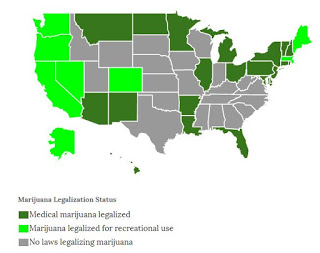Baby Boomers’ number: 4.8% of older adults in U.S. used marijuana in 2013, up from 2.8% a decade ago

“Given the unprecedented aging of the U.S. population, we are facing a never before seen cohort of older adults who use recreational drugs,” Dr. Benjamin Han, a geriatrician and health-services researcher at New York University, said in the news release. “With the increased availability of legalized marijuana, there is an urgent need to understand the prevalence of its use and also its effects among older generations.”
The researchers said older adults could be at high risk for adverse health outcomes when they concurrently use multiple substances, like marijuana and prescription drugs.
“Older people may use marijuana for a variety of reasons, including medical reasons. However, we need to make sure they are not using in a hazardous manner since older adults may be vulnerable to its possible adverse effects,” Han said. “One particular concern for older users is the risk of falls while using marijuana; however, this has not yet been studied.”
 |
| STATUS OF MARIJUANA LEGALIZATION The map does not include states that allow cannabis oil for certain medical conditions. Kentucky passed such a law in 2014. (Governing magazine map) |
The research, published in the journal Addiction, reviewed self-reported data from more than 47,000 adults aged 50 and older from the National Survey on Drug Use and Health from 2006 to 2013.
It found that marijuana use rose 71 percent among adults 50 and older in 2006-13, increasing from 2.8 percent a decade ago to 4.8 percent in 2013, reports the Associated Press. It also found the rate of use dropped “significantly” for adults 65 and older, though it rose 2.5 times over eight years.